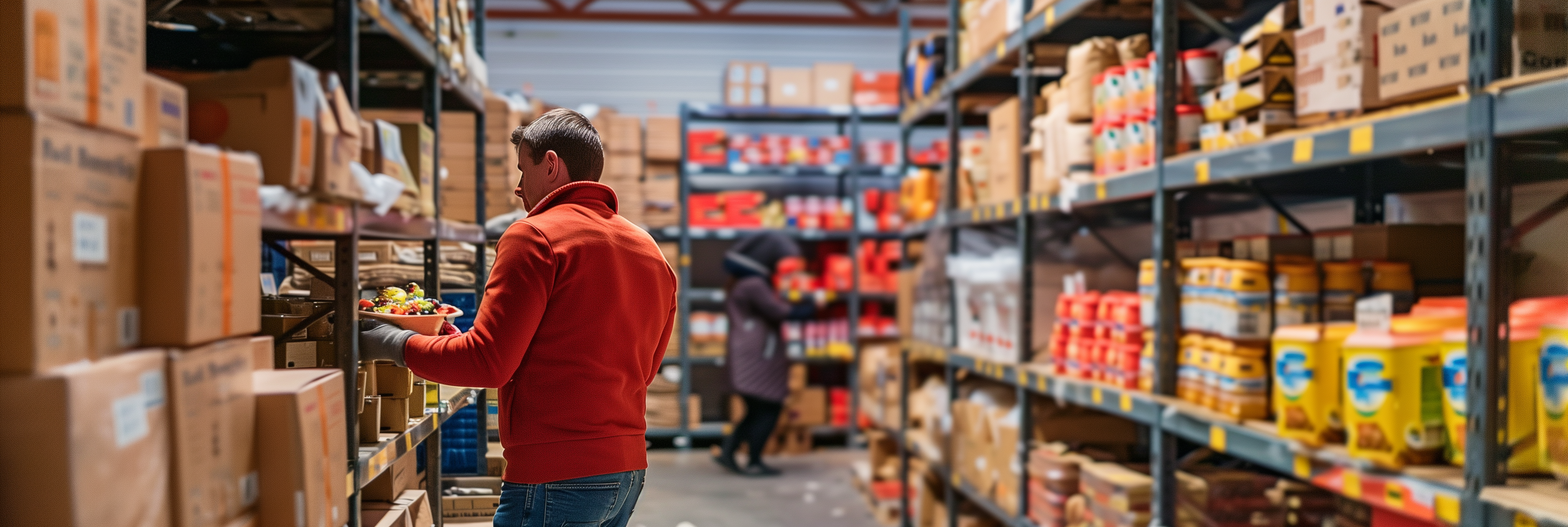
The Importance of Mental Preparedness in Emergency Food Planning
The Importance of Mental Preparedness in Emergency Food Planning
Introduction: The Role of Mental Preparedness in Emergency Situations
When we think about emergency preparedness, we often focus on the physical preparations: stockpiling food, water, and supplies, creating an evacuation plan, and so on. But there's another aspect of emergency preparedness that is equally important: mental preparedness. In this article, we'll explore the psychological impact of emergencies, and discuss how mental preparedness can help you cope with the stresses of a crisis.
The Psychological Impact of Emergencies
Emergencies can have a profound psychological impact on individuals and communities. Some of the common emotional responses to emergencies include:
- Stress and Anxiety
In emergency situations, individuals may experience high levels of stress and anxiety. This can be caused by fear of the unknown, uncertainty about the future, and a sense of helplessness in the face of a crisis.
- Fear and Panic
Fear and panic can also be common responses to emergencies. These emotions can be triggered by the severity of the situation, the presence of danger, and the threat to one's own safety and that of loved ones.
- Depression and Trauma
In some cases, emergencies can lead to depression and trauma. This can be caused by loss of property, financial hardship, or the loss of loved ones.
How Mental Preparedness Can Help
Mental preparedness can help individuals cope with the psychological impact of emergencies by building resilience and coping skills, reducing stress and anxiety, and providing a sense of control and security.
It can help individuals build resilience and coping skills that can be used in emergency situations. This can involve learning relaxation techniques, developing problem-solving skills, and building a support network.
It can also help reduce stress and anxiety in emergency situations. By preparing mentally for a crisis, individuals can feel more in control of the situation, and better equipped to handle the challenges that may arise.
Finally, mental preparedness can provide a sense of control and security in emergency situations. By having a plan in place and knowing what to do in an emergency, individuals can feel more confident and prepared to face the situation.
Tips for Building Mental Preparedness
There are several things that individuals can do to build mental preparedness in advance of an emergency situation. These include:
- Stay Informed and Educated
One of the most important things individuals can do to build mental preparedness is to stay informed and educated about the risks and challenges of emergency situations. This can involve reading up on emergency preparedness resources, attending training sessions or workshops, and staying up-to-date with the latest news and information.
- Practice Mindfulness and Self-Care
Practicing mindfulness and self-care can also help build mental preparedness. This can involve activities such as meditation, exercise, and spending time with loved ones.
- Build a Support Network
Building a support network can also be helpful in building mental preparedness. This can involve reaching out to friends, family, and neighbours, and building connections with local emergency services and community groups.
The Role of Emergency Food in Mental Preparedness
Emergency food can play an important role in mental preparedness by providing nutritional and physical support, reducing stress and anxiety around food scarcity, and providing a sense of normalcy and comfort.
During an emergency situation, access to nutritious food can be limited. By having an emergency food supply on hand, individuals can ensure that they have the nutrients they need to stay healthy and energised during a crisis.
Emergency food can also help reduce stress and anxiety around food scarcity. By having a supply of food on hand, individuals can feel more secure in the knowledge that they will have enough to eat, even if stores are closed or supplies are disrupted.
Finally, emergency food can provide a sense of normalcy and comfort during a crisis. Familiar foods and meals can provide a sense of stability and routine, which can be important for mental well-being during stressful times.
For those wanting to build an emergency food supply, we recommend you visit Building Your Food Stockpile: 50 Long-Life Foods To Include.
Suggested Articles
Homegrown Wisdom: The Surprising Connection Between Self-Sufficiency and Ambient Food Storage
In a world where convenience and immediate gratification reign supreme, it's easy to take our readily available food ...
Emergency Food for Low-Income Individuals: Access and Affordability in Times of Crisis
During times of crisis, securing basic necessities becomes a challenge, with food security becoming an urgent concern...
How might Climate Change harm our our society?
The potential impact of climate change is one that has gained increasing attention and urgency in recent years - in f...




